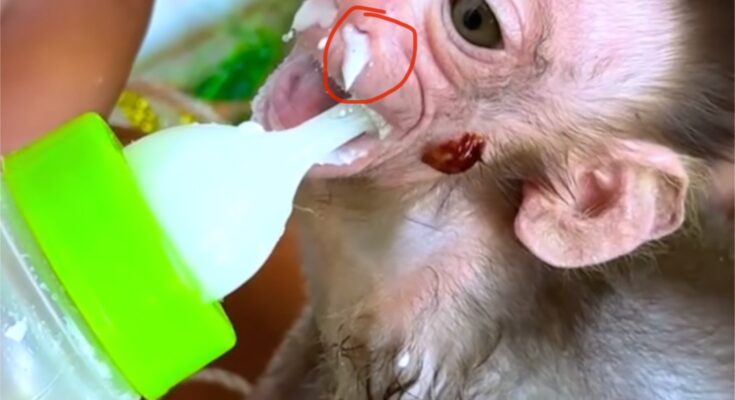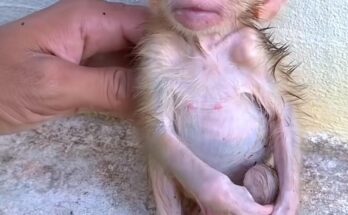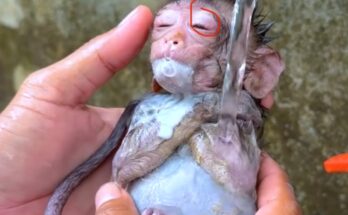In the natural world, the earliest moments of life are often the most delicate, and for many primate species, this reality is especially true. Newborn monkeys rely almost entirely on their mothers—or a stable social group—to survive. Without proper care, warmth, and protection, infant monkeys face extremely high risks, including starvation, injury, or even death. Understanding why these young primates are so vulnerable reveals not only the fragility of their early development but also the deep emotional and social complexity of monkey societies.
One of the primary reasons newborn monkeys depend so heavily on adults is their physical underdevelopment at birth. Unlike many mammals that can walk shortly after being born, baby monkeys arrive weak, with limited mobility and coordination. Their survival hinges on constant physical contact, usually clinging to their mother’s fur as she moves through trees or across the ground. If a mother rejects her baby—whether due to stress, illness, inexperience, or environmental pressures—the infant may not have the strength or skills to cling to another caregiver, putting it at immediate risk.
Nutrition is another critical factor in early survival. Monkey mothers provide milk not only rich in nutrients but also essential antibodies that strengthen the infant’s immune system. Without this nourishment, newborns are prone to dehydration, malnutrition, and infections. In captivity, caretakers must often step in with round-the-clock bottle feeding and temperature regulation when a mother is unable or unwilling to nurse her newborn. Even then, survival is not guaranteed, as primate infants require far more than just food—they need comfort, stimulation, and bonding to thrive.
Social structure also plays a central role in primate survival. Many monkey species live in tightly knit groups where females help one another care for infants, a behavior known as alloparenting. This shared responsibility provides extra protection and improves survival rates. However, in unstable groups, or in situations where a troop faces environmental threats such as habitat loss, food scarcity, or predators, infants may not receive the attention they need. Stress within the group can lead to neglect or aggression, leaving vulnerable newborns without the necessary support.
Human activity further complicates these challenges. Deforestation, hunting, and illegal wildlife trade often separate mothers from their infants or force troops into dangerous, unstable habitats. Orphaned baby monkeys rescued by rehabilitation centers frequently arrive dehydrated, malnourished, or traumatized. Caretakers must work tirelessly to imitate natural maternal care—providing warmth, carrying the infants constantly, and gradually teaching them essential survival skills.
The survival of newborn monkeys is not simply a biological concern—it reflects the health of entire ecosystems. When primate infants struggle to survive, it signals broader environmental stress that ultimately affects all species, including humans. Protecting monkey populations therefore requires safeguarding forests, reducing human-wildlife conflict, and supporting conservation efforts that keep family groups intact.
Newborn monkeys remind us how deeply interconnected life in the animal kingdom truly is. Their need for warmth, nourishment, and emotional bonding mirrors our own beginnings. Ensuring they receive the care they need is not just an act of compassion but a commitment to preserving the natural balance of our shared world.



